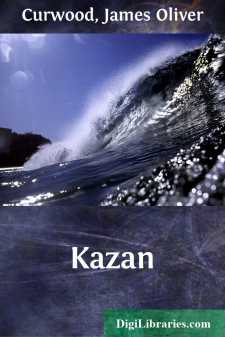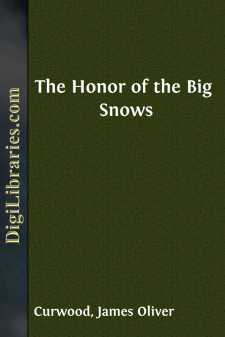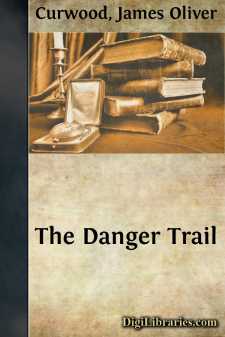Categories
- Antiques & Collectibles 13
- Architecture 36
- Art 48
- Bibles 22
- Biography & Autobiography 816
- Body, Mind & Spirit 145
- Business & Economics 28
- Children's Books 18
- Children's Fiction 14
- Computers 4
- Cooking 94
- Crafts & Hobbies 4
- Drama 346
- Education 58
- Family & Relationships 59
- Fiction 11831
- Foreign Language Study 3
- Games 19
- Gardening 17
- Health & Fitness 34
- History 1378
- House & Home 1
- Humor 147
- Juvenile Fiction 1873
- Juvenile Nonfiction 202
- Language Arts & Disciplines 89
- Law 16
- Literary Collections 686
- Literary Criticism 179
- Mathematics 13
- Medical 41
- Music 40
- Nature 179
- Non-Classifiable 1768
- Performing Arts 7
- Periodicals 1453
- Philosophy 66
- Photography 2
- Poetry 897
- Political Science 203
- Psychology 45
- Reference 154
- Religion 516
- Science 126
- Self-Help 86
- Social Science 82
- Sports & Recreation 34
- Study Aids 3
- Technology & Engineering 59
- Transportation 23
- Travel 463
- True Crime 29
James Oliver Curwood
James Oliver Curwood (1878-1927) was an American author and conservationist known for his adventure novels set in the wilderness, particularly the Canadian North. His works, such as "The Grizzly King" and "The River's End," often reflect his deep love for nature and his experiences as an outdoorsman. Curwood's writing significantly contributed to early 20th-century popular literature and inspired conservation efforts, including the establishment of the Curwood Castle Museum in Michigan.
Author's Books:
Sort by:
CHAPTER ITHE TWO OATHSOn an afternoon in the early summer of 1856 Captain Nathaniel Plum, master and owner of the sloop Typhoon was engaged in nothing more important than the smoking of an enormous pipe. Clouds of strongly odored smoke, tinted with the lights of the setting sun, had risen above his head in unremitting volumes for the last half hour. There was infinite contentment in his face,...
more...
CHAPTER ONE Philip Weyman's buoyancy of heart was in face of the fact that he had but recently looked upon Radisson's unpleasant death, and that he was still in a country where the water flowed north. He laughed and he sang. His heart bubbled over with cheer. He talked to himself frankly and without embarrassment, asked himself questions, answered them, discussed the beauties of nature and...
more...
I "Such hair! Such eyes! Such color! Laugh if you will, Whittemore, but I swear that she was the handsomest girl I've ever laid my eyes upon!" There was an artist's enthusiasm in Gregson's girlishly sensitive face as he looked across the table at Whittemore and lighted a cigarette. "She wouldn't so much as give me a look when I stared," he added. "I couldn't...
more...
THE RIVER'S END I Between Conniston, of His Majesty's Royal Northwest Mounted Police, and Keith, the outlaw, there was a striking physical and facial resemblance. Both had observed it, of course. It gave them a sort of confidence in each other. Between them it hovered in a subtle and unanalyzed presence that was constantly suggesting to Conniston a line of action that would have made him a...
more...
Chapter I The Miracle Kazan lay mute and motionless, his gray nose between his forepaws, his eyes half closed. A rock could have appeared scarcely less lifeless than he; not a muscle twitched; not a hair moved; not an eyelid quivered. Yet every drop of the wild blood in his splendid body was racing in a ferment of excitement that Kazan had never before experienced; every nerve and fiber of his...
more...
CHAPTER I Bram Johnson was an unusual man, even for the northland. He was, above all other things, a creature of environment—and necessity, and of that something else which made of him at times a man with a soul, and at others a brute with the heart of a devil. In this story of Bram, and the girl, and the other man, Bram himself should not be blamed too much. He was pathetic, and yet he was terrible....
more...
CHAPTER XIII After that one calling of her name Alan's voice was dead, and he made no movement. He could not disbelieve. It was not a mental illusion or a temporary upsetting of his sanity. It was truth. The shock of it was rending every nerve in his body, even as he stood as if carved out of wood. And then a strange relaxation swept over him. Some force seemed to pass out of his flesh, and his...
more...
CHAPTER I THE MUSIC "Listen, John—I hear music—" The words came in a gentle whisper from the woman's lips. One white, thin hand lifted itself weakly to the rough face of the man who was kneeling beside her bed, and the great dark eyes from which he had hidden his own grew luminously bright for a moment, as she whispered again: "John—I hear—music—" A sigh fluttered from...
more...
CHAPTER I THE PURSUIT OF THE HUDSON BAY MAIL The deep hush of noon hovered over the vast solitude of Canadian forest. The moose and caribou had fed since early dawn, and were resting quietly in the warmth of the February sun; the lynx was curled away in his niche between the great rocks, waiting for the sun to sink farther into the north and west before resuming his marauding adventures; the fox was...
more...
CHAPTER XIII THE PURSUIT Behind the sledge ran Howland, to the right of the team ran Jean. Once or twice when Croisset glanced back his eyes met those of the engineer. He cracked his whip and smiled, and Howland's teeth gleamed back coldly in reply. A mutual understanding flashed between them in these glances. In a sudden spurt Howland knew that the Frenchman could quickly put distance between...
more...











